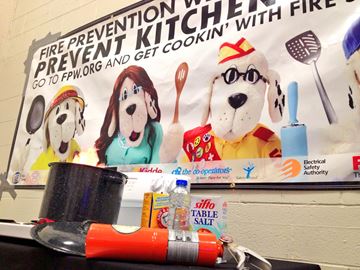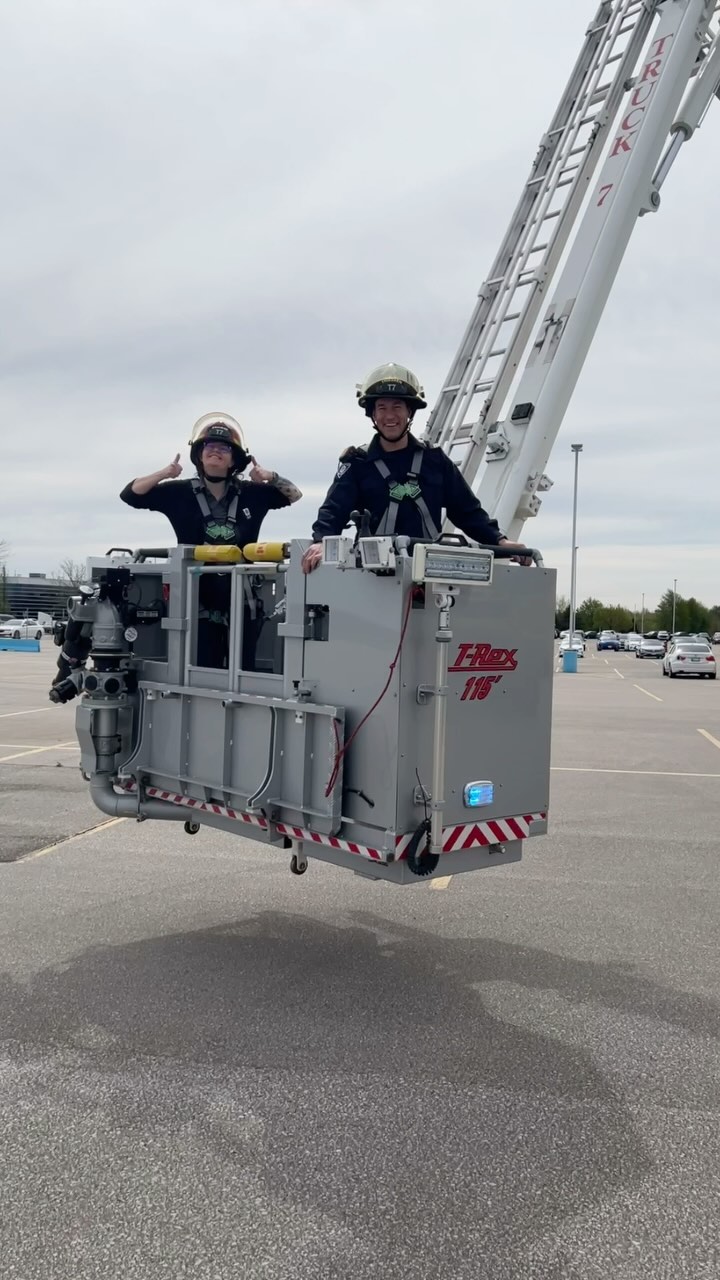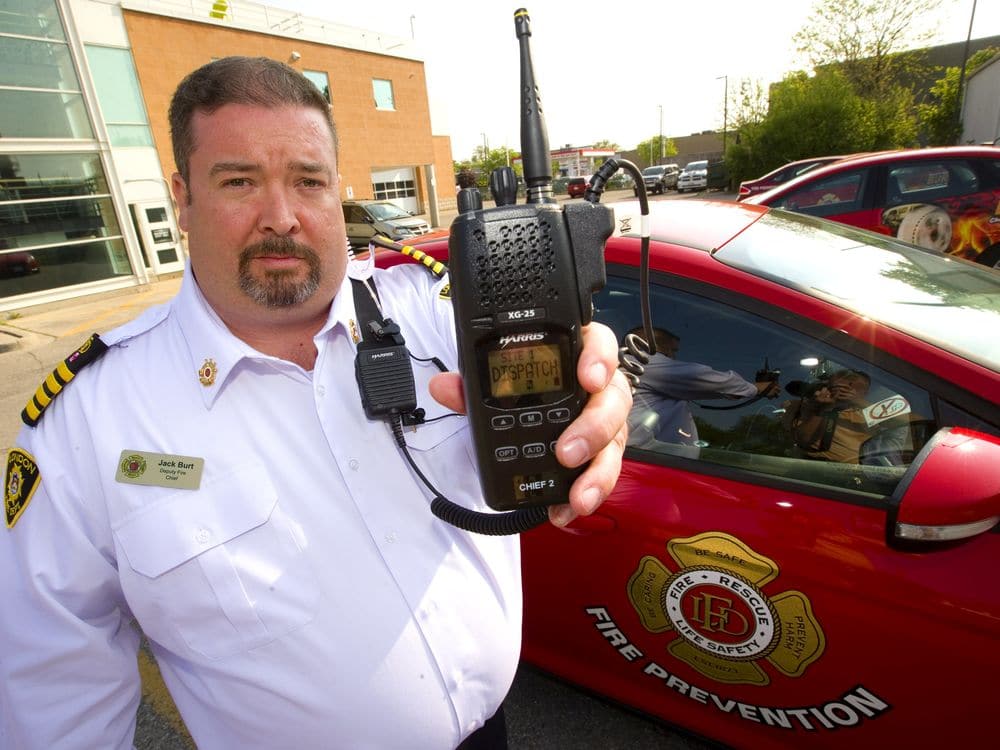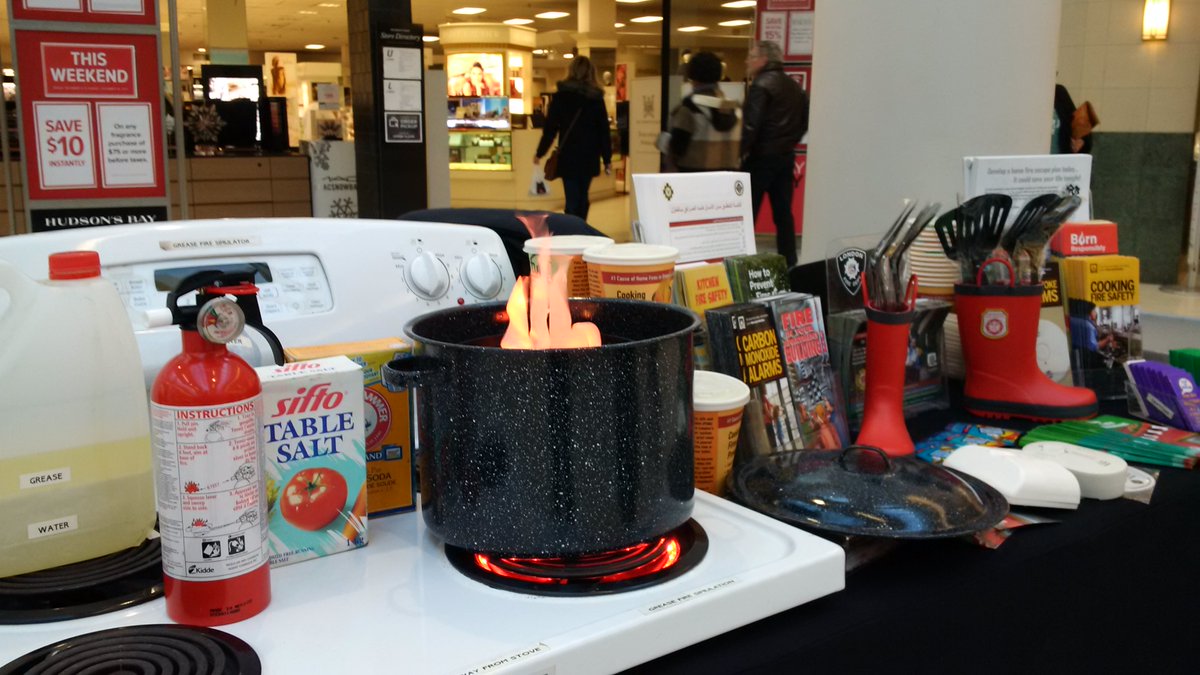Firefighters target distracted cooking
Young Maryn knows what to do if she finds a lighter on the street.
“I would definitely pick it up with a paper towel and take it to a neighbour I trust,” she said confidently, impressing London Fire Department (LFD) Deputy Chief of fire prevention Jim Jessop.
“Would you play with it?” Jessop asked.
“No!”
The six-and-a-half-year-old Tweedsmuir Public School student was one of four who received a sneak peek at the LFD displays in their gym Friday morning (Oct. 4).

London deputy fire chief (fire prevention) Jim Jessop spent some time with Tweedsmuir Public School students Aiden, 8, Isabella, 6 and Maryn, 6 as he kicked off Fire Prevention Week Friday morning (Oct. 4, 2013). Photo Courtesy of Craig Gilbert, London Community News)
Jessop and the LFD chose Tweedsmuir PS to help them launch North American Fire Prevention Week (Oct. 6-12).
The theme this year is kitchen fires, which account for more than half of all residential fire calls in London and Ontario, according to Jessop.
The latest example came earlier in the week, when an unattended pot of oil on the stove started a fire in an Adelaide Street residence.
Jessop said smartphones and social media have created new dangers beyond distracted driving, which accounts for more deaths than drunk driving in Ontario now. Add distracted cooking to the mix now too.
“Don’t leave your stove unattended and don’t get distracted (especially when cooking at high temperatures),” Jessop said. “The investigations over the past number of years in Ontario have shown that the leading cause of distraction is social media. People are on their Blackberrys, they’re tweeting, they’re on Facebook. They put the stove on, turn around and their cupboards are on fire.”
Fire prevention officer and LFD spokesman Richard Jefferson offered a quick demo with the grease fire station, which challenges participants with the correct way to fight and extinguish this type of stovetop fire.
Incorrect options at the station included water, which instantly explodes into steam when it hits the oil, baking soda, salt and a powder extinguisher, none of which are effective unless they cover the entire surface of the fire.
The right answer: put a lid on it, and cut off the oxygen supply.

How do you put out a grease fire? Only one of the options is correct, according to the London Fire Department, and that’s putting a lid on it to cut off the oxygen. Photo Courtesy of Craig Gilbert, London Community News)
Jessop said the extinguisher can be effective, but it must be used correctly and from a safe distance. He said many people discharge the extinguisher too close to the fire, spraying the oil around the kitchen and spreading the fire. Even worse, many will position themselves so the fire is between them and a safe exit.
Jessop said it’s safest to spray the fire from about two metres away with a clear path to the door in case it doesn’t work.
But the best approach is not to leave cooking food unattended in the first place.
“We’re just trying to remind all citizens to pay attention when they’re cooking, especially with high temperatures, and not to be distracted.”
Find more information at http://www.nfpa.org/safety-information/fire-prevention-week.





